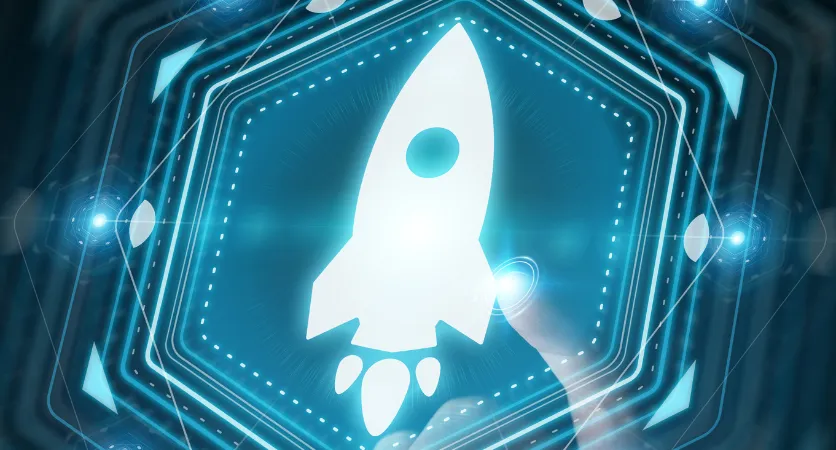What is Marketing Automation?
Marketing automation is the future of marketing because it will simplify your marketing team’s work and allow you to achieve more with limited resources while improving the customer experience. Everyone uses marketing automation, so using marketing automation solutions is very important to stay competitive.
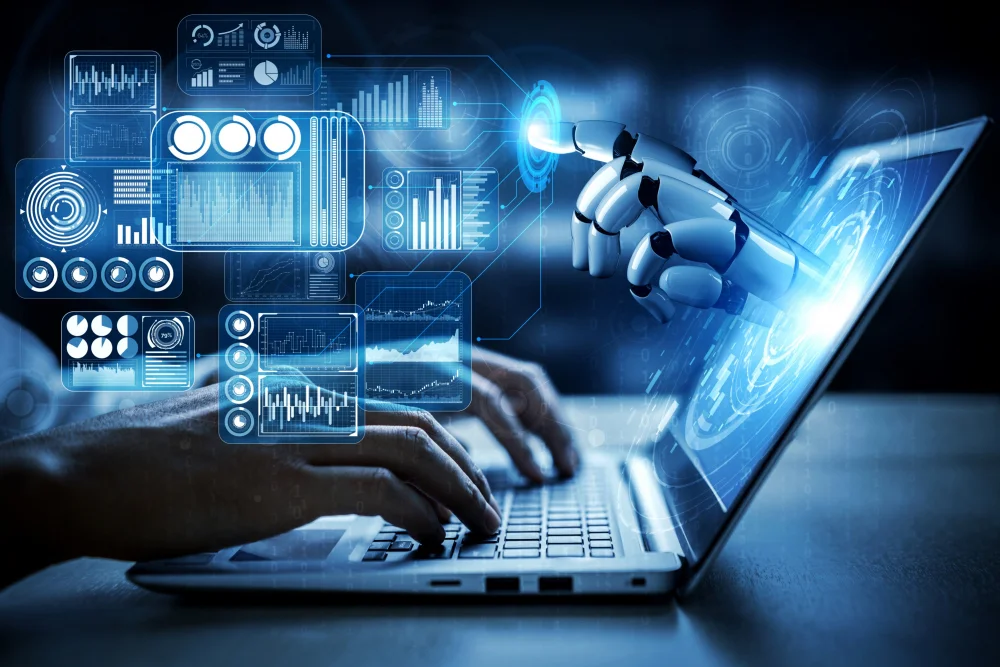
Marketing Automation is the future of marketing as it allows businesses to streamline and optimize their marketing efforts, improve efficiency, and enhance customer engagement. With marketing automation, companies can automate tasks such as email marketing, lead nurturing, social media management, customer segmentation, and campaign tracking.
It enables personalized and targeted communication with customers, automates customer journey workflows, and provides valuable insights for data-driven decision-making. Overall, marketing automation is the future of marketing as it empowers businesses to provide the relevant message to the right audience at the right time, resulting in improved marketing performance and increased revenue.
Types of Marketing Automation
There are several types of marketing automation that businesses can implement:
- Lead Generation and Nurturing Automation: It focuses on automating lead generation processes, such as capturing leads through forms, scoring leads based on their behavior and demographics, and nurturing leads with personalized and targeted content.
- Customer Relationship Management (CRM) Automation: CRM automation involves automating various aspects of customer relationship management, including managing customer data, tracking customer interactions, and automating customer communication and follow-ups.
- Email Marketing Automation: Email automation automates email campaigns, including sending personalized emails based on user behavior, triggering emails based on specific events or actions, and managing email lists and subscriptions.
- Social Media Marketing Automation: It involves automating social media posting, scheduling content in advance, monitoring social media interactions, and analyzing social media metrics.
- Workflow and Task Automation: It focuses on automating various marketing workflows and tasks, such as creating and managing marketing campaigns, assigning tasks to team members, and tracking progress and results.
- Personalization and Segmentation Automation: It involves automating the personalization and segmentation of marketing content and campaigns based on user preferences, behavior, demographics, and other relevant data.
These are some examples of marketing automation that businesses can leverage to streamline their marketing processes, improve efficiency, and enhance customer experiences. From these examples, we can conclude that marketing automation is the future of marketing as will enhance your campaign performance many folds.
Marketing Automation Services:
Marketing automation is the future of marketing as it is being widely used in today’s business environment. Our company, CrimsonCobalt Digital, is your skilled marketing automation partner. Here’s how our approach to implementing marketing automation works.
We were early adopters of marketing automation and used it to make our customers and marketing more efficient. CrimsonCobalt Digital uses a variety of marketing automation solutions to help clients scale their processes and achieve superior results. Contact us if you need to automate a segment of your marketing strategy or your entire marketing process.
Our area of expertise lies in automation software tools.
Use our team of certified marketing automation experts to generate more leads for your business.
You must deeply understand your target audience and customer journey to choose the right marketing automation solutions for your business. We start with an initial discovery call where we discuss your business, your target audience, and your requirements. The next step involves further research to help you understand your business and market deeply.
After gathering information from the discovery call and follow-up survey, we select software solutions that meet your needs. Depending on your needs, we can offer several solutions to manage different aspects of your marketing process.
You don’t have to worry about integrating your new marketing automation solution into your existing system. We create and implement an implementation strategy that considers your current processes and ensures a smooth transition from your old method to the new automated approach. We will take care of it for you.
When we analyze the initial results of implementing marketing automation – the future of marketing in your organization, we optimize the use of the software to ensure the best possible outcome. In addition, we are ready to help you solve potential problems at any stage of using your new marketing automation solution.
Why use Marketing Automation for your Campaigns?
Using marketing automation – the future of marketing for your campaigns offers several benefits:
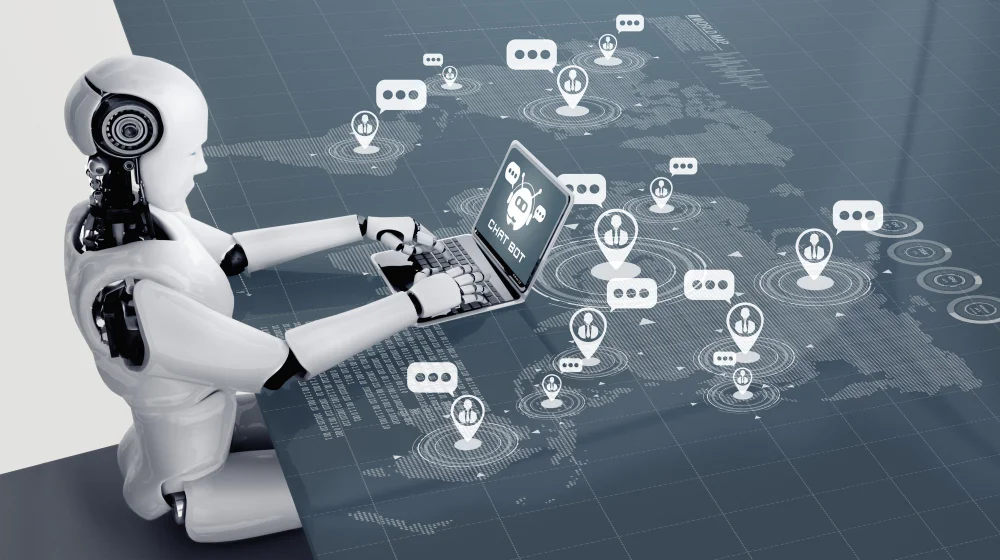
Here are the benefits of using marketing automation:
- Increased Efficiency: Marketing automation is the future of marketing as it allows you to streamline and automate repetitive tasks, saving time and effort. It eradicates the need for manual processes, such as sending individual emails or scheduling social media posts, enabling you to focus on high-value activities.
- Enhanced Personalization: With marketing automation, you can deliver personalized and targeted content to your audience at scale. By leveraging customer data and segmentation, you can tailor messages, offers, and recommendations based on individual preferences, increasing engagement and conversion rates.
- Improved Lead Management: Marketing automation helps you effectively manage your leads throughout the customer journey. Thus marketing automation is the future of marketing as you can capture and track leads, nurture them with automated email campaigns, and assign scores based on their interactions. This enables you to identify high-quality leads and prioritize follow-ups.
- Better Customer Engagement: You can maintain consistent engagement and build stronger relationships by automating customer communication. Marketing automation enables you to send timely and relevant messages, respond to inquiries promptly, and deliver personalized experiences that resonate with your audience. Thus, the enhanced customer engagement makes marketing automation the future of marketing.
- Data-Driven Decision Making: Marketing automation is the future of marketing, and it provides valuable insights and analytics to measure your campaign performance. You can track key metrics, such as open rates, click-through rates (CTRs), and conversion rates, to measure your marketing efforts’ efficacy and make data-driven optimization decisions.
- Scalability and Consistency: Marketing automation empowers you to scale your campaigns efficiently without sacrificing consistency. Marketing automation is the future of marketing because it ensures that every contact receives the same level of attention and engagement, maintaining brand consistency and delivering a seamless customer experience.
Overall, marketing automation enables you to streamline processes, deliver personalized experiences, nurture leads, and make data-driven decisions. It helps you optimize your campaigns, increase efficiency, and drive better results, ultimately contributing to the growth and success of your business. Thus, marketing automation is the future of marketing and will be a boom for any business.
How to use Marketing Automation?
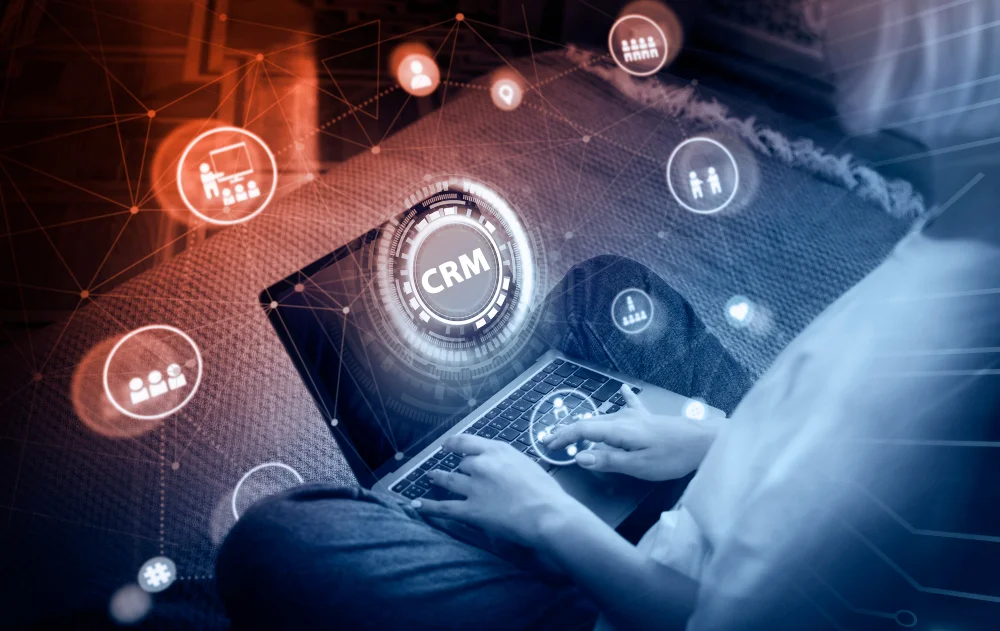
- Define your goals: Determine the objectives you want to achieve through marketing automation, such as lead nurturing, customer engagement, or campaign management.
- Choose the right platform: Select a marketing automation platform that aligns with your needs and offers features like email automation, lead scoring, CRM integration, and analytics.
- Segment your audience: Divide your audience into distinct segments based on demographics, behavior, or interests. It allows you to deliver targeted and personalized messages.
- Create compelling content: Develop relevant and engaging content for each customer journey stage. It includes email campaigns, landing pages, social media posts, and downloadable resources.
- Set up automation workflows: Create automation workflows that define the actions and triggers for each segment. It can include sending personalized emails, triggering follow-ups based on customer interactions, or assigning leads to sales teams.
- Monitor and analyze: Continuously track and measure the performance of your automation campaigns. Monitor key metrics like open rates, click-through rates, conversion rates, and revenue generated to identify areas for improvement.
- Optimize and iterate: Use the insights gained from monitoring and analysis to optimize your automation workflows. Test different variations of content, subject lines, and CTAs to improve engagement and conversion rates.
- Integrate with other tools: Integrate your marketing automation platform with CRM systems, analytics platforms, and social media management tools to streamline data flow and enhance your marketing efforts.
- Provide ongoing training and support: Ensure your marketing team is well-trained in using the automation platform and stays updated with the latest features and best practices. Offer support and resources to troubleshoot issues and maximize the platform’s potential.
- Continuously refine and improve: Marketing automation is an ongoing process. Regularly review your strategies, experiment with new ideas, and evolve to changing market dynamics to stay at the forefront of the competition and drive better results.
Trends in Marketing Automation:
Marketing automation in 2022 has been transformative, empowering businesses to operate more efficiently, deliver personalized experiences, and drive better results across their marketing efforts. Marketing automation trends 2023 have even more to offer.
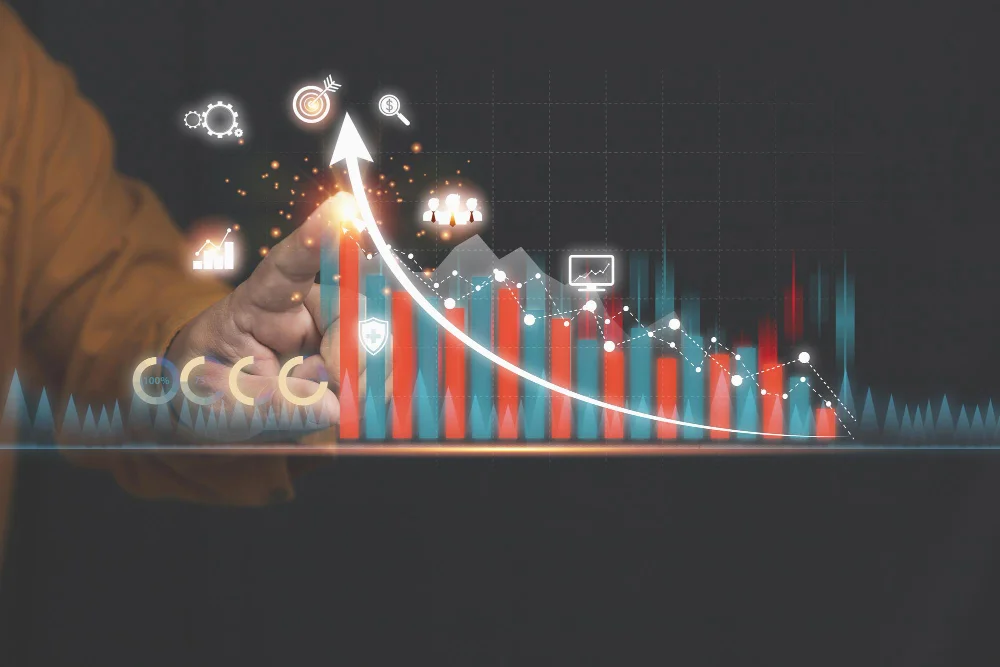
Here Are the Emerging Trends in Marketing Automation
- Customer journey mapping: Marketers use automation to map and optimize the entire customer journey, automating relevant communications and driving customers toward conversion and retention.
- Integration with other systems: Marketing automation is the future of marketing because it helps integrate platforms with CRM, CMS, e-commerce, and analytics tools, enabling seamless data sharing and a holistic view of customer interactions.
- Personalization: Digital Marketers leverage marketing automation to deliver highly personalized experiences, enhancing customer engagement and conversion rates.
- AI and machine learning: Integration of AI and ML enables predictive analytics, automated content generation, and real-time decision-making, optimizing campaigns and delivering relevant messaging. Because of the incorporation of AI and ML, marketing automation is the future of marketing.
- Multichannel automation: Automation extends beyond email marketing to encompass social media, mobile, web, and offline touchpoints, ensuring consistent messaging and optimized customer experiences.
- Account-based marketing (ABM): Marketing automation – the future of marketing plays a significant role in ABM, enabling personalized messaging, lead nurturing, and effective coordination between sales and marketing teams.
- Data privacy and compliance: Marketing automation platforms enhance capabilities to ensure compliance with regulations like GDPR and CCPA, prioritizing consent management and data security.
- Integration of chatbots and conversational marketing: Chatbots and conversational marketing are integrated into automation workflows, providing real-time engagement and personalized customer interactions.
- Automation of repetitive tasks: Marketers automate lead scoring, email workflows, social media posting, and data management, saving time and reducing manual errors.
- Advanced analytics and reporting: Marketing automation is the future of marketing as it offers robust analytics and reporting capabilities, enabling data-driven decision-making and optimization of marketing efforts.
These trends reflect that marketing automation is the future of marketing as it focuses on emphasizing personalization, AI, multichannel engagement, and data privacy. Marketers can drive successful and impactful campaigns by adapting strategies to leverage these trends.
Why Marketing Automation is the Future of Marketing?
The future of marketing automation holds great promise as it adapts to the evolving needs and preferences of businesses and consumers.
Here are key trends that will shape its future:
- Artificial Intelligence and Machine Learning: AI-ML technologies will play a significant role in analyzing large amounts of data to recognize patterns and optimize marketing strategies.
- Personalization at scale: Advancements in AI-ML enable marketers to deliver tailored experiences to individual customers, enhancing engagement and driving conversions.
- Omnichannel integration: Marketing automation is the future of marketing, and it will seamlessly integrate across multiple channels, ensuring consistent messaging and experiences for customers across platforms
- Enhanced analytics and reporting: Marketing automation will offer advanced analytics and reporting capabilities to gain deeper insights and measure campaign effectiveness. With these advanced analytics, marketing automation is the future of marketing in all aspects.
- Integration with other technologies: Marketing automation will integrate with CRM systems, content management platforms, and data analytics tools, providing a unified view of customers and data-driven insights. With these successful integrations, marketing automation is the future of marketing, as it will help in reaping the benefits of other technologies to enhance the performance of your marketing campaigns.
- Automation beyond email: Marketing automation is the future of marketing as it will expand into social media, content marketing, lead nurturing, and customer onboarding, engaging customers throughout their journey.
- Customer experience: Marketing automation will prioritize creating seamless, personalized, and frictionless interactions to foster loyalty and build long-term customer relationships, due to which we can say that marketing automation is the future of marketing.
The future lies in leveraging advanced technologies, personalization, and data-driven insights to deliver exceptional customer experiences. Businesses can drive better outcomes by streamlining marketing efforts and nurturing customer relationships.
In summary, marketing automation is the future of marketing as it will transform businesses’ marketing approach, enabling streamlined processes, personalized interactions, and data-driven insights. With advancements in technology and an ever-evolving digital landscape, marketing automation holds immense potential for creating seamless customer experiences and driving growth. Embracing marketing automation empowers businesses to connect with their audience, nurture relationships, and achieve marketing goals precisely and effectively.


